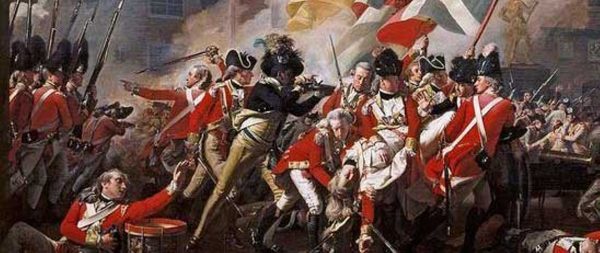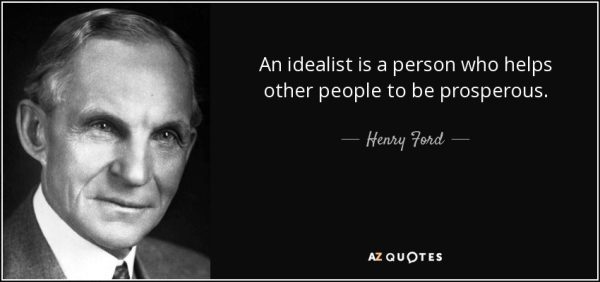Each individual is a unique mix of four personality types. Various titles and designations have known these four types over the ages. Still, for our purposes, they are referred to as the director, the socializer, the thinker, and the supporter. However, we use the abbreviations A, B, C, and D to refer to those personality types.
Learning how to recognize people based on their personality types can help companies enhance employee recruiting and retention by providing a deeper knowledge of interpersonal connections and team development.
Everything from the friends you pick to the candidates you vote for in a political election is influenced by your personality. Despite this, many people seldom give their personality features any thought. You may get insight into your strengths and shortcomings by understanding your personality.
It can also assist you in understanding how people perceive you. There are five primary personality types, according to most contemporary psychologists. Everyone has some degree of each of the five factors, referred to as the “five factor model.”
Why It’s Important To Understand Personality Types?
Understanding why you and others behave the way they do might help you improve your personal and professional relationships. Knowing each personality type and the fears and wants that drive them will help you connect with others more effectively. Who was it that you met this morning? He wasn’t being annoying in the least.
It just appeared that way because you didn’t comprehend his point of view. Our differences are frequently misunderstood, resulting in unneeded confrontations, resentments, and disagreements. For some people, recognizing their personality characteristics and flaws might be difficult. On the other hand, people around us find it easy to categorize us as who and what they believe we are.
Different Types of People
There are many types of people in the world. There are introverts, extroverts, and ambiverts. Below you will find the 17 types of people and personality type.
1. Average People
People who are high in neuroticism and extraversion but low in openness are the most prevalent kind.
2. Reserved People
This personality type is neither open or neurotic, yet it is emotionally steady. They are introverted, pleasant, and conscientious by nature.
3. Role-Models People
With low levels of neuroticism and high levels of agreeableness, extraversion, openness, and conscientiousness, these people are natural leaders. They are dependable and open to new ideas.
4. Self-Centered People
While they have a high level of extraversion, they have average openness, agreeableness, and conscientiousness.
5. Conscientiousness People
The most conscientious individuals are efficient, well-organized, trustworthy, and self-sufficient. They tend to prepare ahead of time and set lofty goals for themselves. People with a low conscientiousness score may perceive those with this personality attribute as obstinate and obsessive.
Fun fact: Studies suggest that marrying someone diligent enhances your chances of success in the profession. A supportive spouse might help you be more productive and achieve your goals.
6. Extroversion/Extraversion People
Extroverted people get their energy from social interaction. They’re chatty and friendly, and they’re at ease in front of the camera. Others may see them as dominating and attention-seeking.
A firm handshake is something to watch out for. According to studies, men with the strongest handgrips are more likely to be extroverted and less likely to be neurotic. However, this is not the case for women.
7. Agreeableness People
Those with a high agreeableness score are dependable, kind, and loving to others. They’re recognized for their philanthropic tendencies and are frequently involved in volunteer work and charitable activities. Others could think they’re naive and excessively docile.
Fun fact: Look for a financial investor who has a high level of agreeability. According to studies, pleasant investors are the least likely to lose money in high-risk investing. Avoid an investor with a high level of openness since that personality is linked to overconfidence, leading to excessive risk-taking.
8. Openness To Experience People
People with a high openness score are recognized for their diverse interests and creative imaginations. They’re curious and inventive, and they like variation to strict schedules. They’re renowned for seeking self-actualization through euphoric experiences such as contemplative retreats or living overseas. Others may perceive them as erratic and distracted.
Openness is the only personality characteristic that predicts political inclination consistently. According to studies, persons with a high level of openness are more inclined to support liberalism and communicate their political opinions.
9. Neuroticism People
Emotional instability is a common symptom of neurotic persons. They are more prone to be reactive and excitable and experience negative feelings such as worry and anger. Others may perceive them as insecure and unstable.
Fun fact: Neurotic persons seek approval by uploading a large number of photos to Facebook. According to studies, they’re less likely to make contentious remarks or updates and are far more likely to upload many images (they also have the most photos per album).
10. The Skeptic / Loyalist People
The Loyalist or Skeptic is a dedicated yet cautious person. What is the relationship between these characteristics? They aren’t. However, one is the outcome of the other. Sixes can be extremely loyal to friends and family after they have established their trustworthiness.
Six has an underlying feeling of threat and danger that makes them wary and skeptical. They’re prepared to believe the worst. They are skeptical of almost everything, and they need confirmation that their fears are unfounded before they can relax their guard.
They can’t afford to be overly cautious. They believe that they must be vigilant to safeguard themselves and others to whom they are devoted. Six has acquired a heightened sense of danger as a result of her concerns. They are critical thinkers who are also protective. Their task is to avoid paranoia and excessive questioning, which can lead to procrastination and poor performance.
11. The Reformer / Idealist People
The Reformer is a perfectionist who is principled, conscientious, and moral. They are idealistic and tend to be harsh with themselves and others. They hold everyone to high standards, even themselves. They are self-disciplined, committed, accountable, and composed. Reformers are frequently effective because they do a great deal of work in a timely and efficient manner.
A feeling of purpose guides their ideas and actions. As they are sometimes referred to, ones have highly active internal critics who point out and rectify inappropriate conduct. It’s all too easy for them to become self-righteous and regard others’ flaws with disdain. They are also harsh on themselves and others, sometimes excessively so.
12. The Helper / Caregiver People
The Helper is a person who is kind and outgoing. They are generous, friendly, and demonstrative, and they like spending time with others. They have a lot of friends, and you’d like having them around because of their positive attitude and desire to have fun. They are sensitive to the needs of others and can always be depended on to offer a hand. Because Twos have a hard time saying no.
They exist just to satisfy others. This is due to Two’s poor self-esteem and a strong need for recognition. As a result, others frequently misuse Twos’ kindness, and they are helpless to intervene for fear of rejection. In the long term, putting others’ demands ahead of their own and repressing sentiments to avoid conflict can lead to bitterness and resentment.
13. The Individualist / Romantic People
Individualists, often known as Romantics, are sensitive and temperamental people. They seek to be distinctive and spend a lot of time imagining how things could be. They are self-aware and have a greater understanding of emotions. Fours have a high sense for beauty and significance, and are frequently active in activities that require creativity and expression. They have a small number of close friends, yet they have a lot of them.
They make wonderful friends because they are warm and compassionate, and they think you worthy of their time and attention. Fours have the problem of being prone to depression, mood swings, and self-pity. They want to stand out, yet their sense of individuality makes them feel alienated.
They yearn for the exceptional, and despise the commonplace and boring. Fours are frequently found engrossed in their own imaginary worlds. They are unable to find satisfaction in the basic things that other people take for granted due to their lofty goals.
14. The Investigator / Observer People
The thoughtful and reflective type is the Investigator or Observer. Their attention is drawn to gaining information and gaining a better understanding of oneself. They are frequently lost in their thoughts and love analyzing ideas. They are unconcerned about acquiring material goods or maintaining their social standing. They are engrossed in their search for their true selves.
Isolation and seclusion are important to fives. Rather of socializing, they prefer to watch, research, and ponder. They are cerebral and mental. They are afraid of not having the inner strength to confront the world, so they retreat into the sanctuary of their thoughts, where they feel more at ease. They are typically clever and well-read.
They frequently become specialists at anything they choose to pursue because they enjoy studying and understanding how things operate. Because they lack the required social skills, fives are frequently disregarded at work. People with fewer intelligence and talents have an easier time succeeding than the lone Five.
15. The Adventurer / Enthusiast People
The Enthusiast or Adventurer is a free-spirited, fun-loving personality type. They like engaging in pleasurable activities and are usually in a good mood. They are pleasure-seekers who will go to great lengths to escape unpleasant situations. Sevens are the least stressed of all personality types. They are upbeat people who are rarely depressed by life’s difficulties. They’ll just find something enjoyable to do and search for the silver lining.
Sevens bounce from one thought to the next, frequently abandoning a work or project before their attention is drawn to something else. They have a hard time committing to just one item. This may be an issue in relationships. When trapped in a committed relationship, sevens tend to be promiscuous and feel constrained. They would rather be unrestricted, to be constantly stimulated, and to keep going forward. The thought of settling down may be the farthest thing from a Seven’s mind.
16. The Warrior / Challenger People
The Challenger, also known as the Warrior, is a powerful and commanding personality type. They are born leaders who are self-assured and aggressive. This Alpha-type personality is self-sufficient and never exhibits symptoms of weakness. They utilize their power to defend people close to them, and they are not afraid to take command in any circumstance.
Eight’s dread of being dominated has resulted in these traits. They want to be in charge of their destiny and control people and events rather than the other way around. They are open and honest to the point of being rude. Even if the aim was not to insult, some who don’t comprehend Eight may take offense.
They are also more aggressive than the other types, and they are more open to expressing their displeasure. Because of their explosive and powerful character, eights are frequently misinterpreted. The urge to defend and combat injustice is at the heart of Eight. As if they were a hero in sparkling armor.
17. The Peacemaker People
The Peacemaker has a laid-back and pleasant personality. They try to avoid confrontations and conflicts like the plague. Nines like connecting with people and nature, but only in a peaceful and harmonious environment. People love their friendly and supportive company since they are nonjudgmental.
They’re generally seen mediating or serving as a referee to defuse a potentially tense incident. They have a propensity to retreat from life to escape internal and external problems. They may also be out of touch with their own emotions, such as the ability to feel and express rage appropriately.
Many Nines are introverts who like peace. Some Nines are busy and friendly, but they are not too involved. If they can’t defuse a situation threatening their peace of mind, they won’t hesitate to withdraw themselves from it and isolate themselves. They are prone to inactivity and might be indecisive since they are not aggressive.















